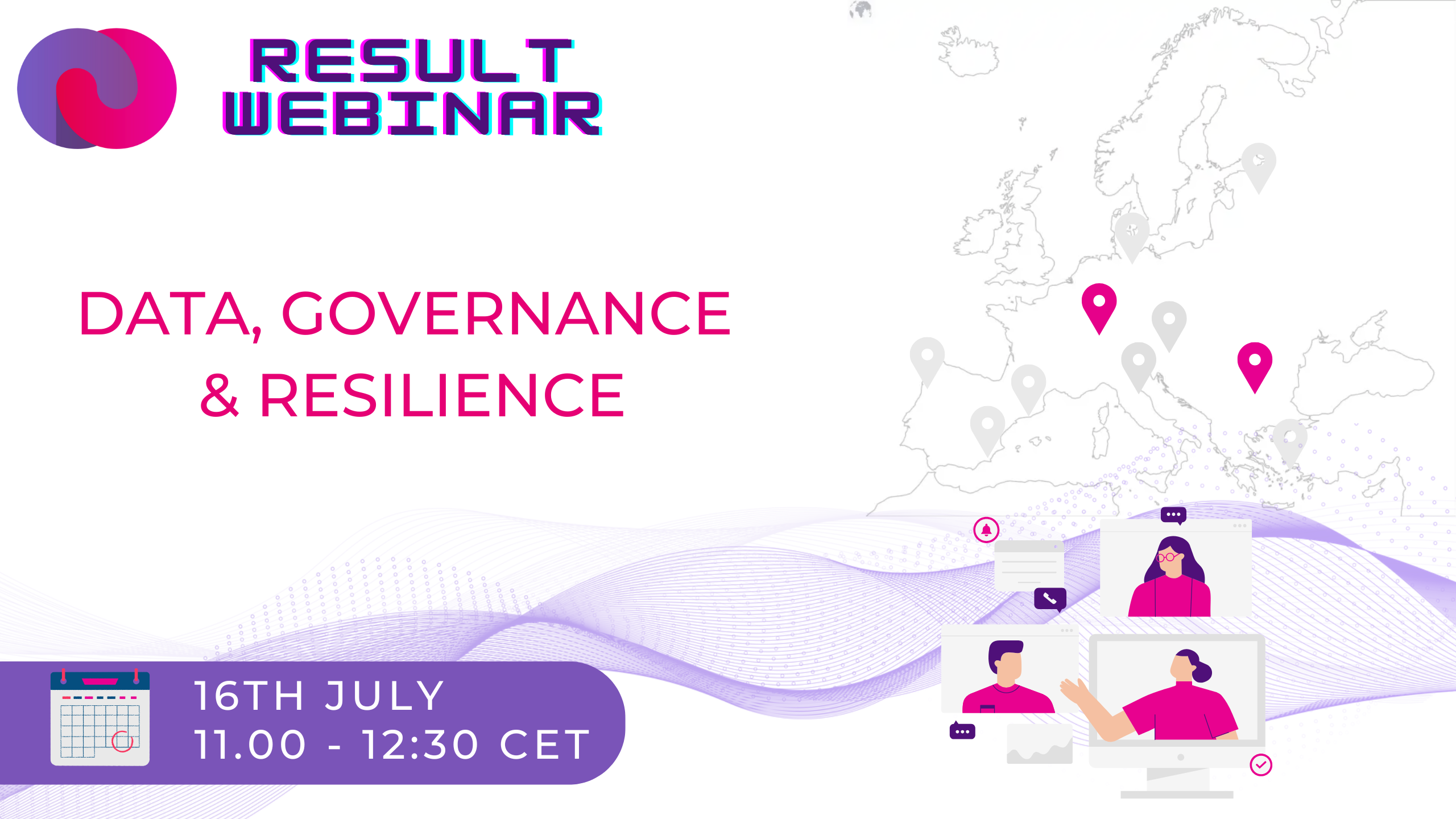Results Webinar V: Data, governance and resilience (BAPEMED & IMMER Labs)

The FutuResilience project funded ten labs that bring together multiple stakeholders to co-create evidence-informed policies aimed at strengthening societal resilience against various crises. Emphasising knowledge valorisation for policy uptake, the labs served as experimental spaces for policy testing, using a diverse range of approaches and tools with a strong focus on future-oriented thinking.
Over approximately 15 months, each lab began by defining concrete challenges, mapping key stakeholders, and exploring how these challenges might evolve over time by developing different scenarios. With a focus on enhancing societal preparedness, the labs’ stakeholders collaborated to design evidence-based policy actions capable of addressing the initial challenges across multiple plausible future scenarios.

This webinar series marks a key milestone and an opportunity to showcase the process and insights gained from the different labs, highlighting their results, methodologies, outputs, and key lessons learnt. In particular, this webinar will focus on two labs, BAPEMED & IMMER, which approach concrete challenges related to governance mechanisms in two sectors: healthcare system resilience and energy-mobility interconnections, offering practical tools and policy insights to enhance societal resilience.
The BAPEMED Lab has focused on strengthening the resilience of the Bulgarian healthcare system by addressing critical gaps, such as the lack of emphasis on preventive care, the absence of a standardized health data collection system, and the need for a robust regulatory framework. The lab has adopted a foresight-based approach, analysing future healthcare scenarios and conducting policy testing to develop effective, context-specific policy responses. By engaging diverse healthcare stakeholders, the lab has generated inclusive and forward-looking solutions, ensuring that the Bulgarian healthcare system is better equipped to handle future crises and challenges.
The IMMER Lab tackled the pressing issue of energy and mobility resilience in the Strasbourg-Kehl area, recognizing the growing interdependencies between energy supply, transportation infrastructure, and climate change risks. By leveraging science-fiction narratives and participatory foresight techniques, the lab has worked with local stakeholders—including energy producers, mobility operators, fluvial port authorities, and public institutions—to develop long-term strategies for regional resilience. Through a series of co-creation workshops, the lab has designed a “portolan chart”—a dynamic roadmap that continuously evolves with new insights, enabling local actors to reframe solutions and enhance transformative capacity in response to future challenges.
Preliminary Agenda
- Welcome and introduction: Matias Barberis, EFIS Centre
- BAPEMED: Developing a more resilient healthcare system, Patrick Gallen, CIFS & Venzislava Dacheva, BAPEMED
- IMMER: Improving mobility and energy cross-border cooperation, Didier Raffin, FHK and Jean-Alain Héraud, APR
- Moderated Discussion, Philine Warnke, Fraunhofer ISI
- Q&A Session, Caterina Rondoni, UNIFE
Register here: https://events.teams.microsoft.com/event/f269c2f3-a12b-48f0-ad0a-141759f52a84@8eaef797-67a0-42ea-8b25-c45c1fb67fcd